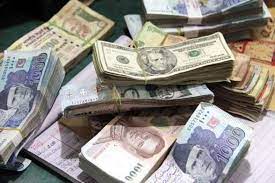The extension of crude oil supply cuts by Saudi Arabia and Russia did not yield the anticipated impact on prices, indicating investor concerns about demand.
As the world’s largest crude oil exporter, Saudi Arabia announced a unilateral extension of production cuts by 1 million barrels per day (bpd) through August, with the possibility of further extensions.

Russia followed suit by voluntarily reducing exports by an additional 500,000 bpd in August, on top of the existing 700,000 bpd reduction since March.
Algeria also pledged to decrease output by an extra 20,000 bpd in August, adding to its total cut of 68,000 bpd since April.
These new reductions were in addition to the group’s existing output cap, which was around 2 million bpd in October 2022 and 1.6 million bpd in May.
The decision to limit supply came amid concerns over diminishing supplies and weakening global economies due to inflation and rising interest rates.
Despite temporary price increases resulting from the production cuts, apprehensions about weak oil demand are constraining significant price gains.
On Monday, the Brent oil price closed at $74.65 per barrel, experiencing a 0.33 percent decrease following the confirmation of production cuts by Saudi Arabia and Russia. Brent ended the week at $78.17 per barrel, reflecting a 4 percent gain. According to the International Monetary Fund, Saudi Arabia needs Brent crude to trade at approximately $81 per barrel to maintain budget balance.
However, investors remain cautious and less optimistic. Analysts suggest that Saudi Arabia and Russia are primarily focused on stabilizing prices to prevent them from falling below $70 per barrel. There are concerns about the lack of catalysts in the market for higher prices in the near future.
Marc Ostwald, Chief Global Economist at ADM Investor Services, emphasized the market’s attention to the demand side, particularly China. He highlighted the high crude imports in Beijing during the first half of the year, noting that much of the volume has been re-exported as products, indicating weak domestic demand in the country.






